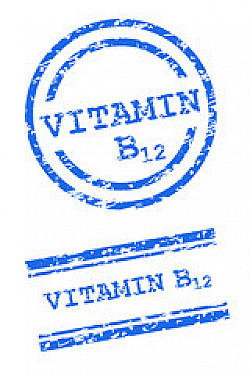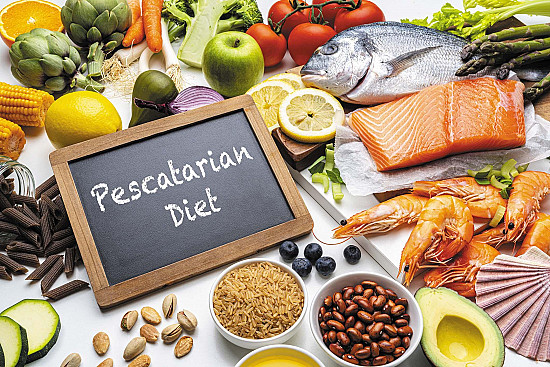
Driving with arthritis pain: Stay comfortable — and safe — behind the wheel

Daily cup of coffee may prevent afib recurrence

Gene-editing therapy lowers harmful blood fats in early study

What is EMDR therapy, and who can it help?

GLP-1 drugs versus bariatric surgery for treating obesity

Two dumbbells, three exercises, and 10 minutes

Easing the emotional burden of IBS

Modify your push-ups to meet your fitness level

What is long QT syndrome?

Stroke survivors may benefit from very low LDL levels
When it comes to protein, how much is too much?

You've probably heard the claims by now: Here's a diet that's delicious, easy to stick with, and guaranteed to help you lose weight effortlessly. Or, perhaps it's supposed to build muscle, protect your joints or prevent Alzheimer's. Whatever the diet and whatever the claim, there's a good chance that it is, indeed, too good to be true.
In recent years, high protein diets are among the most popular, whether the protein is consumed as a supplement (protein shakes for body builders!) or simply a larger than usual portion of a balanced diet (such as The Zone, Atkins or Paleo Diets).
Perhaps you're curious about one of these diets or have already tried them— did you ever wonder whether too much protein might be a problem?
How much protein do you need?
Protein is essential for life – it's a building block of every human cell and is involved in the vital biochemical functions of the human body. It's particularly important in growth, development, and tissue repair. Protein is one of the three major "macronutrients" (along with carbohydrates and fat).
So, consuming enough protein is required to stave off malnutrition; it may also be important to preserve muscle mass and strength as we age. And, in recent years, some have advocated a higher protein diet to rev up metabolism to make it easier to lose excess weight, though success in this regard is highly variable.
- The ideal amount of protein you should consume each day is a bit uncertain. Commonly quoted recommendations are 56 grams/day for men, 46 grams/day for women. You could get 46 grams/day of protein in 1 serving of low-fat Greek yogurt, a 4 oz. serving of lean chicken breast and a bowl of cereal with skim milk.
- A weight-based recommended daily allowance (RDA) of 0.8 grams per kilogram of body weight. For a 140-pound person, that comes to 51 grams of protein each day. (You can convert your body weight from pounds to kilograms by dividing by 2.2; so, 140 pounds is 64 kg; multiplying this by 0.8 equals 51). Active people— especially those who are trying to build muscle mass— may need more.
- Based on percent of calories— for an active adult, about 10% of calories should come from protein
- To pay more attention to the type of protein in your diet rather than the amount; for example, moderating consumption of red meat and increasing healthier protein sources, such as salmon, yogurt or beans.
But some experts suggest that these recommendations are all wrong and that we should be consuming more protein, up to twice the standard recommendations. Still others claim that the average American diet already contains too much protein.
Can too much protein be harmful?
The short answer is yes. As with most things in life, there can be too much of a good thing and if you eat too much protein, there may be a price to pay. For example, people that eat very high protein diets have a higher risk of kidney stones. Also a high protein diet that contains lots of red meat and higher amounts of saturated fat might lead to a higher risk of heart disease and colon cancer, while another high protein diet rich in plant-based proteins may not carry similar risks.
So, when it comes to protein, how much is too much?
It's hard to provide a specific answer since so much is still uncertain and the experts themselves don't agree. However, for the average healthy person (who is not an elite athlete or heavily involved in body building) it's probably best to keep total protein intake to no more than 2 gm/kg of ideal body weight; that would be about 125 grams/day for a 140-pound person with a normal body mass index (BMI).
What's a protein lover to do?
If you want to maintain a high protein diet, the details matter:
- Find out from your doctor if you have any health conditions (such as kidney disease) that might make such a diet risky.
- Get your protein from healthy sources such as low-fat dairy products, fish, nuts and beans, lean chicken and turkey; avoid proteins sources that contain highly process carbohydrates and saturated fat.
- Spread your protein consumption across all of your meals throughout the day.
- Choose a well-balanced diet that includes lots of vegetables, fruits, and fiber; the Mediterranean diet or the DASH diet are good starting points.
Image: samael334/Getty Images
Disclaimer:
As a service to our readers, Harvard Health Publishing provides access to our library of archived content. Please note the date of last review or update on all articles.
No content on this site, regardless of date, should ever be used as a substitute for direct medical advice from your doctor or other qualified clinician.

Driving with arthritis pain: Stay comfortable — and safe — behind the wheel

Daily cup of coffee may prevent afib recurrence

Gene-editing therapy lowers harmful blood fats in early study

What is EMDR therapy, and who can it help?

GLP-1 drugs versus bariatric surgery for treating obesity

Two dumbbells, three exercises, and 10 minutes

Easing the emotional burden of IBS

Modify your push-ups to meet your fitness level

What is long QT syndrome?

Stroke survivors may benefit from very low LDL levels
Free Healthbeat Signup
Get the latest in health news delivered to your inbox!
Sign Up




